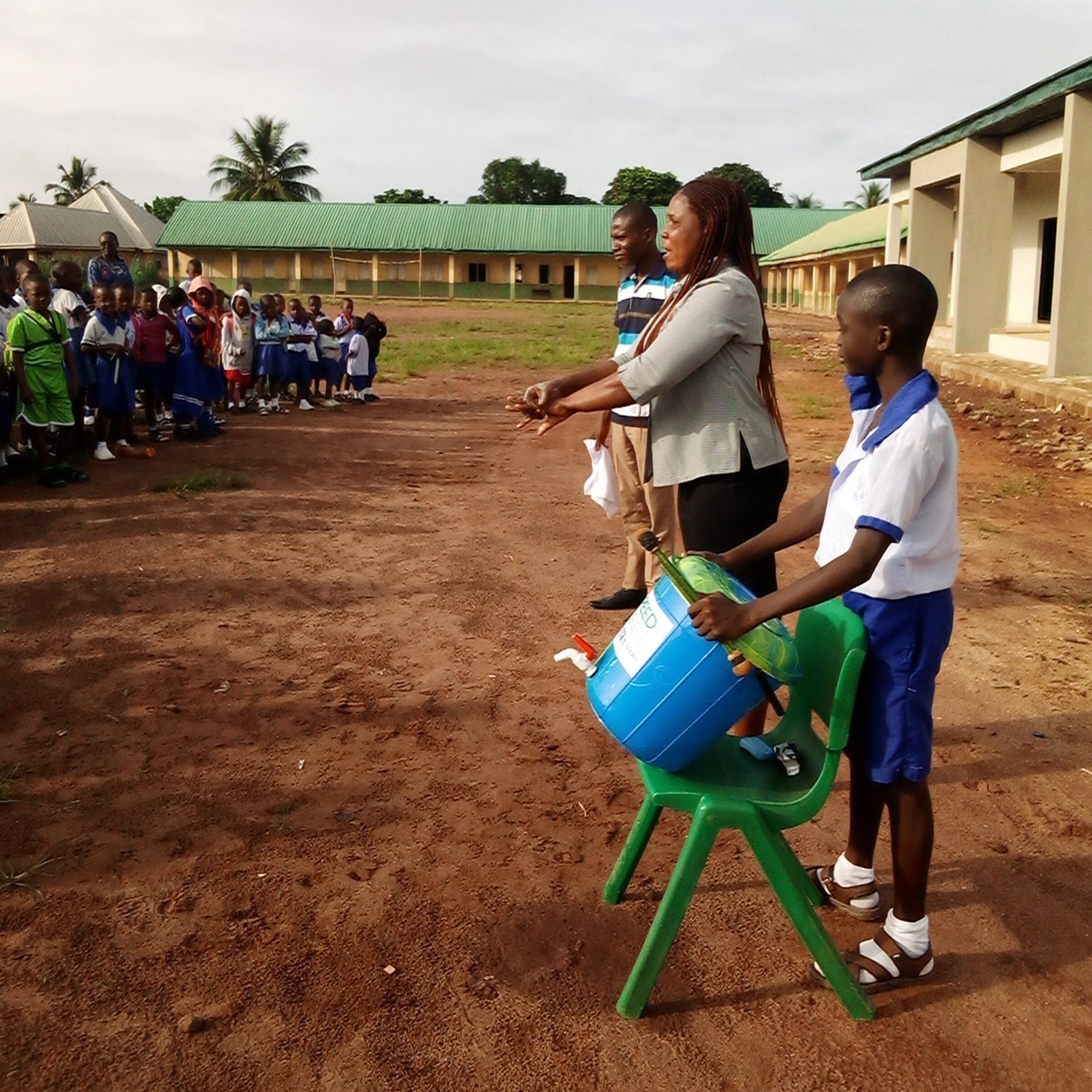Promoting Hygiene Awareness Among Pupils: A Practical Demonstration to fight Communicable Diseases
Our Education Officer, Mr. Jerry, engaged students in an important discussion about the significance of maintaining good hygiene practices. This session was aimed at equipping pupils with the knowledge and skills necessary to prevent the spread of diseases, especially in the context of vulnerable children who are at a higher risk of infections.
Mr. Jerry, assisted by the dedicated school staff, led a practical demonstration that taught the pupils the proper techniques for handwashing. The demonstration was designed to not only explain the theory behind good hygiene but to also ensure that students understood and could apply the right methods in their daily routines.
The focus of the session was on how to effectively wash hands to prevent the transmission of harmful bacteria and viruses. Pupils were shown the steps involved in proper handwashing: wetting their hands, applying soap, scrubbing all surfaces (front, back, between the fingers, and under the nails), rinsing thoroughly, and drying with a clean towel.
By learning these essential steps, the pupils were educated on how handwashing can mitigate the spread of dangerous diseases such as typhoid, cholera, and other waterborne and communicable infections. These diseases are often prevalent in areas where hygiene practices are not consistently followed, making it crucial for children, particularly in vulnerable communities, to understand the importance of clean hands in safeguarding their health.
This practical demonstration not only empowered the pupils with valuable health knowledge but also provided a platform for them to ask questions and share their own experiences regarding hygiene. It helped instill a sense of responsibility among the children, encouraging them to take ownership of their health and to pass on what they learned to others in their communities.
Good hygiene practices, such as regular handwashing, can significantly reduce the occurrence of infections and diseases. These practices are especially important in communities where children are already facing the challenges of poverty, malnutrition, and limited access to healthcare. By promoting hygiene awareness, we are contributing to the overall well-being of these children and helping to reduce their vulnerabilities.
Through initiatives like this, we aim to ensure that children in the communities we serve are not only protected from preventable diseases but are also equipped with the knowledge to make healthier choices throughout their lives. We remain committed to continuing our efforts in promoting hygiene, sanitation, and health education as part of our broader mission to support and uplift vulnerable children.

